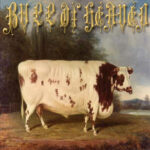Kansas’s “Dust in the Wind” is a song that evokes strong reactions. For many, it’s a melancholic masterpiece, a poignant reflection on life’s fleeting nature. For others, it’s a harbinger of despair, a tune so bleak it can darken even the sunniest day. There’s no denying the song’s ubiquity; that gentle guitar intro is instantly recognizable, a sonic trigger that can transport you to a state of introspective gloom whether you want to go there or not. It’s the kind of melody that feels like a soundtrack to existential dread, a quiet whisper of nihilism in a world already full of noise.
The lyrics, stark and unflinching, contribute significantly to this perception of despair:
Same old song
Just a drop of water in an endless sea
All we do
Crumbles to the ground, though we refuse to see
These words, delivered with a soft, almost resigned vocal, paint a picture of human insignificance against the vast backdrop of time and the universe. It’s a message that, depending on your mood and disposition, can be either profoundly moving or utterly soul-crushing.
 Image of a music video still, possibly from VICE, related to music content.
Image of a music video still, possibly from VICE, related to music content.
The song doesn’t shy away from confronting mortality and the ephemeral nature of human endeavors. Later in the song, the lyrics reinforce this theme:
Say farewell
Toilet of darkness eats everyone you love
Flush it down
We’re just squares of TP for the man above
While perhaps not always interpreted literally as toilet imagery, the sentiment is clear: life is transient, and ultimately, we are all destined to fade away. This direct confrontation with mortality is rare in popular music, and it’s part of what makes “Dust in the Wind” so impactful – and for some, so deeply depressing. The addition of the violin further intensifies the emotional weight of the song, adding a layer of mournful beauty that can feel almost unbearable in its sadness.
It’s important to distinguish between Kansas the band and Kansas the state. The state of Kansas is known for its heartland charm and contributions to American culture. It’s the birthplace of figures like Bob Dole, and a setting for beloved stories like parts of The Wizard of Oz. The band Kansas, however, with “Dust in the Wind,” has become synonymous with a particular brand of musical melancholy that can feel emotionally devastating. The state deserves a musical anthem that reflects its positive attributes, something a little more uplifting than existential soft rock.
The true test of “Dust in the Wind”‘s depressing power comes when it unexpectedly infiltrates your daily life. Imagine hearing it on the morning radio, in a store, or even drifting from a car at a traffic light. The seemingly innocuous melody burrows into your subconscious, and the weight of its message hits you later. Suddenly, the mundane tasks of daily life – paying bills, doing laundry, even just getting dressed – can seem utterly pointless in the face of cosmic indifference and inevitable oblivion.
The supermarket scenario, as described in the original article, perfectly encapsulates this feeling of existential dread amplified by “Dust in the Wind.” Surrounded by the necessities of life – food, supplies – the song’s message of futility can transform a simple shopping trip into an encounter with the void. The realization that “all your money won’t another minute buy” echoing through the aisles of frozen foods and household goods can be a truly unsettling experience.
In the aftermath of 9/11, Clear Channel reportedly listed “Dust in the Wind” among songs deemed “lyrically questionable.” This reaction, while perhaps extreme, highlights the song’s perceived power to evoke somber and unsettling emotions. Whether it deserves to be banned is debatable, but its capacity to provoke profound feelings of melancholy and even despair is undeniable. “Dust in the Wind” remains a powerful and enduring song, even if for some, it’s a little too effective at reminding us of our own mortality.

